Thinking about hardwood flooring for your home but feeling a bit unsure about where to start? Don’t worry—you’re not alone!
There’s something undeniably timeless about hardwood floors. They have a unique charm that laminate and vinyl are always trying to replicate. Plus, they age beautifully, can handle everyday wear, and even increase your home’s value—perfect if you’re thinking long-term or planning to sell.
But with so many gorgeous options out there, choosing the right hardwood flooring can feel a little overwhelming.
That’s where we come in! We’ll walk you through the essentials of what to know before you buy. Then, we’ll break down our top picks for the best hardwood floors, looking at quality, durability, and cost. Shall we get started?
Solid vs. Engineered Hardwood Flooring
Wondering whether to choose solid or engineered hardwood for your home? Here’s the lowdown to help make your decision a bit easier!
Solid Hardwood
Made from one solid piece of natural wood, this type of flooring is all about timeless appeal and durability. With the right care, it can literally last a lifetime! But (and there’s always a “but”), it’s not all sunshine and rainbows—solid hardwood tends to scratch easily and doesn’t play well with moisture, so you’ll want to skip it for spaces like basements or bathrooms.
Engineered Hardwood
Now, engineered hardwood is a bit different—it’s made up of 3 to 9 layers of material, which gives it some serious advantages. While it might not last quite as long (think 40–80 years with proper care), it’s far better at handling moisture and resists scratches more than its solid counterpart.
Oh, and one more consideration—cost. Solid hardwood can almost set you back double the price of engineered hardwood. Something to keep in mind when you’re planning your budget!
Whichever you choose, both options bring warmth and character to any home. It all depends on your specific needs and where the flooring will go!
How Hard is Your Hardwood Flooring?
Got kids, pets, or a household that’s always on its feet? Then you’ll need hardwood flooring that’s tough enough to take a beating. That’s where the Janka scale comes in!
This handy scale measures how resistant different wood types are to dents and wear, using something called pound-force (lbf). Basically, the higher the number, the tougher the wood.
Here’s a quick rundown to help you pick the perfect fit for your home:
- Soft (below 800 lbf): Great for low-traffic spaces like bedrooms or closets where life is a little calmer.
- Medium (800 to 1,600 lbf): Ideal for most homes. Perfect for living rooms or dining areas that see moderate activity—just not constant chaos.
- Hard (above 1,600 lbf): Made to handle the hustle! These woods are your go-to for high-traffic areas, busy households, or spaces shared with energetic kids and big, playful dogs.
When in doubt, go harder for durability. (Because no one loves a floor full of dings!)
Colours and Customisation That Suit You
The right flooring colour can completely transform a space—it’s usually the first thing people notice! Whether you prefer rich, dark tones for a cosy vibe or lighter shades to brighten up your room, there’s a colour out there to match your style and furniture perfectly.
Not sold on the natural colour of a particular wood but love its durability? No problem, staining is always an option! Just keep in mind that different types of wood react to stain in their own unique way.
If you’re in Greater Manchester and need help finding the perfect flooring or customisation options, we’re here to make it seamless—your dream floor is just a consultation away!
Now let’s dive and unearth types of Hardwood floors.
10. Teak Flooring in Manchester – Durable, Stunning, and Full of Character
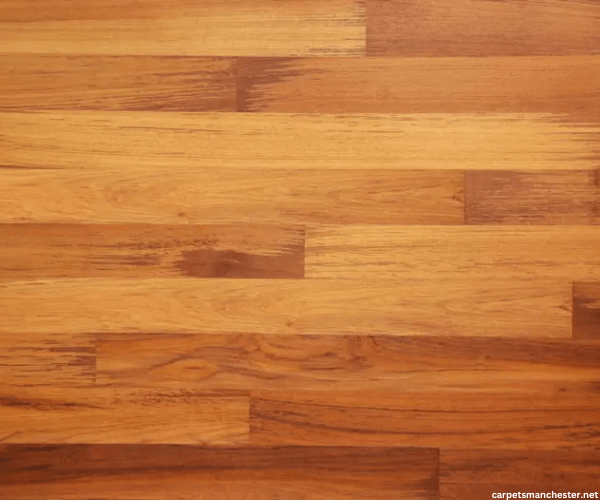
Teak is one of those exotic woods that’s hard not to fall in love with. Thanks to its natural oils, it has a gorgeous sheen that shines even without much treatment—talk about low maintenance! While it’s definitely on the pricier end, teak wooden floors are more than worth it for the statement they make in any home.
Now, here’s where it gets interesting. When people say “teak,” they may actually be talking about one of two types—traditional teak or Brazilian teak. while both are stunning, they have some important differences.
Brazilian teak is super tough. Ranking over 3500 on the Janka Scale, it’s one of the most durable options available—ideal for homes with heavy foot traffic or pets. Traditional teak is more middle-of-the-road in terms of durability, scoring around the 1000 mark.
Aesthetically, they both have their charm. Traditional teak has that classic honey-brown tone and a simple straight grain pattern, perfect for timeless interiors. Brazilian teak, on the other hand, has a bit more drama—it comes in shades from golden to red, often with a bold and eye-catching grain that commands attention.
But, here’s a pro tip—whichever style speaks to you, always ensure you’re purchasing from a Forest Stewardship Council (FSC)-certified source. Unethical harvesting is a major issue, and opting for FSC-certified teak ensures you’re making an environmentally conscious choice.
9. Oak, with key differences
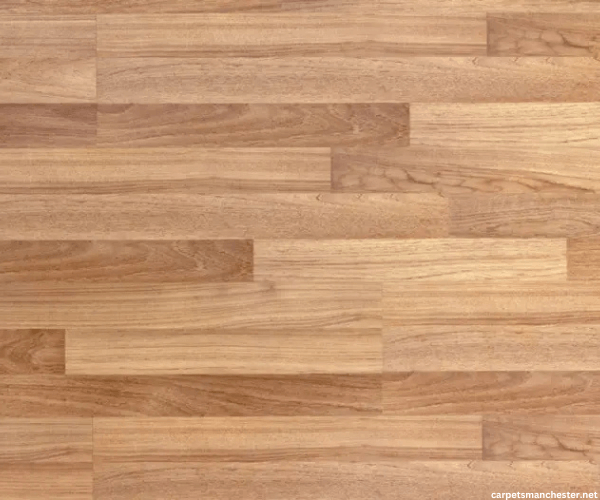
Oak is one of the most popular types of wood you’ll find in the UK—and it’s probably exactly what comes to mind when you think of traditional hardwood flooring. Whether you’re renovating a home in Salford or updating your office in Stockport, oak wooden floors are a timeless choice that works beautifully in any setting.
But did you know there are actually two kinds of oak commonly used for flooring?
Red oak brings a warm vibe with its reddish undertones, noticeable grain variation, and a Janka hardness rating of 1290. Meanwhile, white oak has a cooler aesthetic, with subtle grey undertones, a more consistent appearance, and a slightly higher Janka rating of 1360.
Here’s a fun fact for you—red oak flooring is so popular in the US, it’s considered the industry standard for hardness, with over a dozen subspecies contributing to its versatility. That’s some serious star power in the flooring world!
Pricing for Oak Hardwood Flooring:
- Solid Oak Hardwood: £3.20–£6.50 per square foot
- Engineered Oak Hardwood: Starting at just £2.00 per square foot
If you’re considering oak for your floors, it’s an investment that offers a stunning look paired with durability. For expert floor fitting and top-tier flooring services, including oak hardwood, look no further than trusted providers such as hardwood flooring Manchester specialists. From selection to installation, we’ve got you covered!
8. Walnut: Types, Durability, and Costs
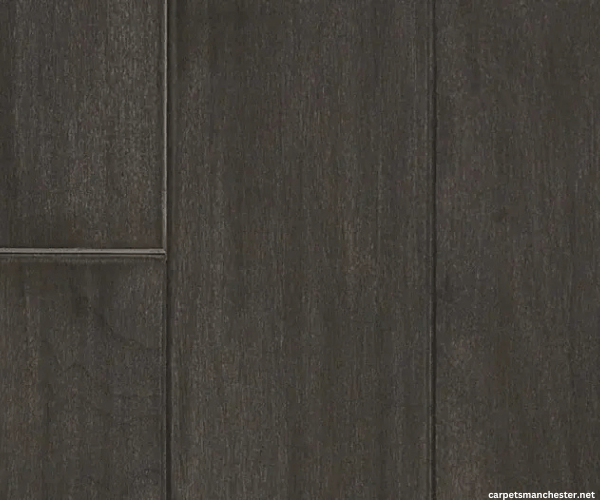
When it comes to walnut, you’ve got options! There’s the classic American Black Walnut we all know and love, and the ultra-durable Brazilian Walnut, also known as Ipe.
American Walnut is the softer choice with a Janka rating of 1010, compared to Brazilian Walnut’s impressive 3600. But typically, when people talk about walnut hardwood, they’re usually referring to the domestic kind. With its deep, dark chocolate hue and beautifully open grain, American Walnut is the go-to for anyone after that luxurious, timeless look.
How much does Walnut Hardwood Flooring cost?
- Solid Walnut Hardwood usually costs between £5 and £9 per square foot.
- Engineered Walnut Hardwood is a bit more budget-friendly at around £3.50 per square foot.
No matter which type you go for, walnut is a fantastic choice for adding elegance to your home!
7. Hickory: Strength, Style, and Cost Breakdown
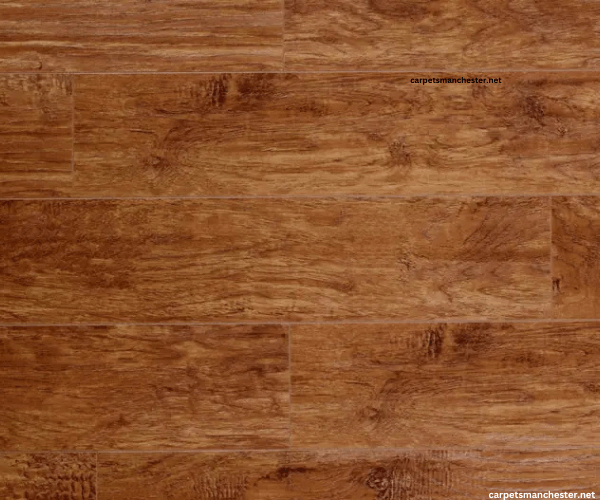
If you’re after wood that’s bursting with personality, Hickory might just be your perfect match. Scoring an impressive 1820 on the Janka scale, it offers both strength and style. With its intricate, varied grain patterns, Hickory shines brightest when cut into long planks that show off its natural character.
This durable and flexible hardwood boasts a coarse grain and, being naturally dry, takes on finishes like a dream.
How much does Hickory flooring cost?
- Solid Hickory Hardwood starts at $3 and goes up to $7 per square foot.
- Engineered Hickory Hardwood begins at $3.40 per square foot.
6. Maple; Flooring with charm
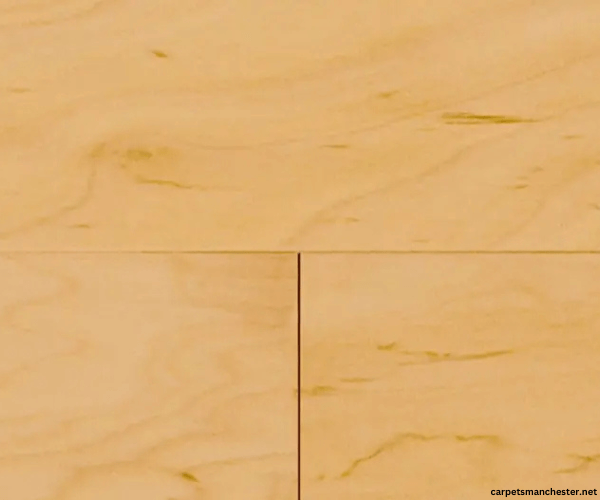
Maple is a classic choice, and it’s easy to see why. Coming in creamy-white and reddish-brown hues, this 1450 Janka-rated hardwood is as versatile as it is stunning. Whether you’re looking for a smooth, timeless vibe or something with a hint of warmth, Maple has a shade for everyone.
Its grain is usually straight but occasionally has a charming wavy touch. And when it comes to texture? Think silky-smooth—it’s fine enough to make basketball courts look perfect! There’s even a Brazilian version of Maple, but its Janka rating is only slightly higher than its domestic cousin.
How much does Maple flooring cost?
- Solid Maple Hardwood ranges from £4.50 to £8.50 per square foot.
- Engineered Maple Hardwood starts at £4.75 per square foot.
Hickory or Maple—both offer durability and charm. The real question is, which one will you choose for your dream space?
5. Mahogany: A timeless luxury
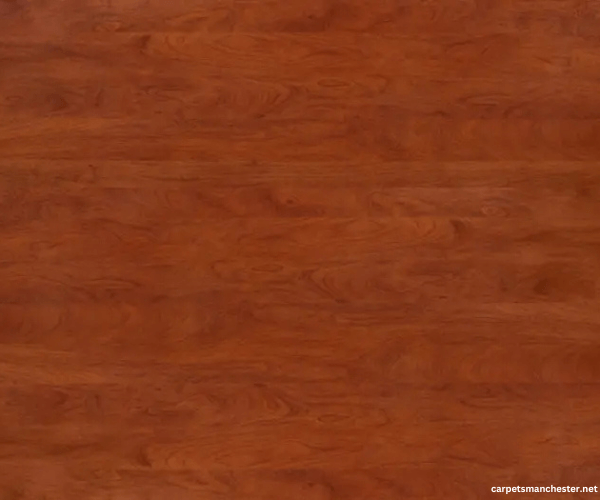
If you’ve always dreamed of your home smelling like leather-bound books and rich mahogany, we wouldn’t blame you—it’s a classic choice, after all! With an impressive Janka rating of 2697, mahogany isn’t just about aesthetics; it’s about durability too. Yes, exotic woods like this can be a bit pricier than domestic options, but the payoff is in its stunning, wavy grain that oozes luxury. Trust us, it’s worth every penny.
Pricing for Mahogany Hardwood Flooring
- Solid Mahogany Hardwood Flooring: £4.60 to £6.20 per square foot
- Engineered Mahogany Hardwood Flooring starts at £3.80 per square foot
4. Cork: Benefits and pricing
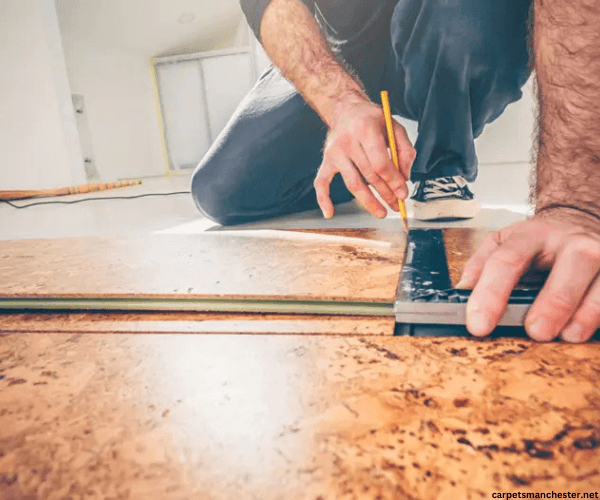
Here’s a fun little fact for you—cork isn’t actually a hardwood at all! It’s made from the bark of cork trees. But since it’s a tree-based product and looks and installs much like hardwood, it’s only fair to give it a mention.
Cork flooring is known for being soft, warm, and surprisingly durable. Seriously, while cork might have its pros and cons, its durability isn’t up for debate. Plus, it has a springy, comfortable feel underfoot. And the best part? Since cork is made from bark rather than the trees themselves, it’s one of the most sustainable flooring materials out there.
Pricing for Cork Flooring
Cork Flooring is available for as little as £2.30 and can go up to £6.90 per square foot.
Looking for trustworthy flooring solutions? We’re a Manchester-based hardwood flooring company that’s here to help you find the perfect material for your home. Whether you crave the elegance of mahogany or the eco-friendly bounce of cork, we’ve got you covered!
3. Birch: Versatility for Your Home
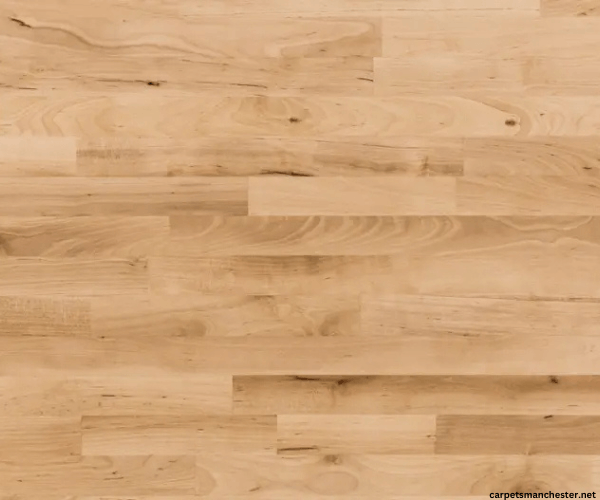
Birch wood is like the hair everyone wishes they had—it’s naturally wavy or curly, with an even texture and a light, warm colour that’s simply stunning. Its durability depends on the subspecies, but no matter which type you choose, birch holds its own. Yellow birch (the most common variety) has a Janka rating of 1260, while sweet birch kicks it up a notch at 1470.
With a straight grain and fine texture, birch is perfect for those long, sleek planks everyone loves. Plus, its colour palette is so varied and versatile that it can suit almost any interior style.
Pricing for Birch Hardwood Flooring:
- Solid Birch Hardwood Flooring: £2.40–£5.40 per square foot
- Engineered Birch Hardwood Flooring: Starting at £2.30 per square foot
Looking to upgrade your space in Manchester? Birch could be a fabulous choice for anyone keen on a classic look, especially for wood floor installation in Didsbury or Chorlton.
2. Australian Cypress: Durable and Full of Character
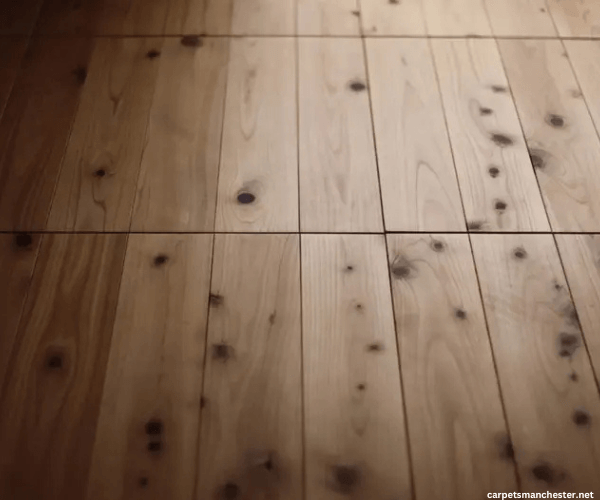
If you’ve got cypress on your mind, chances are you’re thinking about Australian cypress (not the domestic stuff—it’s just not durable enough for floors). Lucky for us, Australian cypress is as strong as it is beautiful, boasting a Janka rating of 1375.
This wood brings a gorgeous mix of honey-gold, cream, and brown shades, all accented by its trademark knots. It’s packed with personality and perfect for creating a floor that feels one of a kind. If you’re after something a bit unique and full of character, cypress might be just the ticket.
Pricing for Cypress Hardwood Flooring:
- Solid Australian Cypress Flooring: Around £12 per square foot
- Engineered Cypress Hardwood Flooring: £3.20–£5.60 per square foot
1. Bamboo: Could Be Your Next Home Upgrade
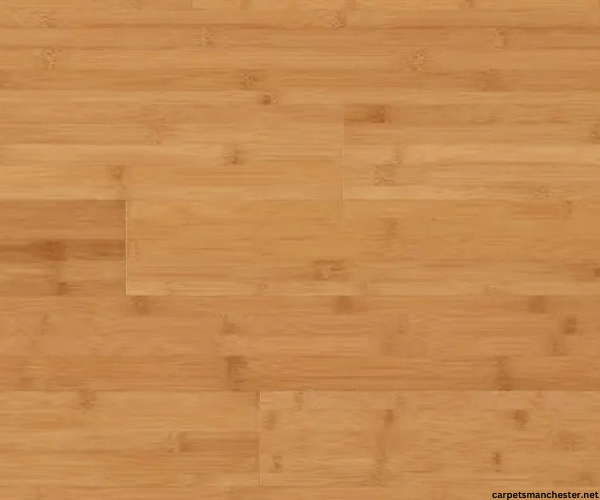
Alright, we know—bamboo isn’t technically hardwood. It’s a type of woody grass. But hear us out! Bamboo gives you all the benefits of hardwood and then some. Available in both solid and engineered planks, it’s tough, versatile, and eco-friendly.
What’s so great about bamboo? First off, it’s unbelievably durable. Strand-woven bamboo can exceed 4,000 on the Janka scale, making it one of the toughest surfaces out there. And when you compare bamboo flooring vs. laminate, bamboo often comes out on top.
On top of that, bamboo is a sustainable superstar. Its stalks mature in just 3–5 years (compared to decades for traditional hardwood), so it’s a fantastic option for anyone who wants a greener home upgrade.
Pricing for Bamboo Flooring:
- Solid Bamboo Hardwood Flooring: £1.60–£4 per square foot
- Engineered Bamboo Hardwood Flooring: Starting at just £1.60 per square foot
Whether you’re drawn to its strength or its sustainable charm, bamboo could be the perfect choice for your next renovation, especially if you’re considering wood floor installation in Didsbury or Chorlton.
conclusion
Honestly, it’s all about what you love! Maybe you’re drawn to maple for its fine grain, mahogany for its rich texture, or the knotty character of cypress.
Looking for engineered or solid floors? Finished or unfinished? The choice is entirely yours, and the options are endless.
One thing’s for sure—you’ll want an expert to guide you through the process. Use our handy Free Booking Calender to connect with a local retailer who can help bring your vision to life!
